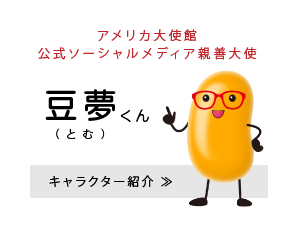国務省出版物
民主主義の原則 – 自由な報道
民主主義国においては、報道機関は政府の統制を受けずに活動しなくてはならない。民主主義政府は、新聞記事の内容やジャーナリストの活動を規制するための情報省を持ったり、ジャーナリストに国家の審査を受けさせることを要求したり、ジャーナリストを政府の管理する組合に加入することを強制したりしない。
- 自由な報道機関は、一般市民に情報を与え、指導者の説明責任を求め、地域および国家の問題を論議するための場を提供する。
- 民主主義国は、自由な報道機関の存在をはぐくむ。独立した司法制度、法の支配に基づく市民社会、そして言論の自由は、いずれも自由な報道活動を支えるものである。自由な報道は法によって保護されなければならない。
- 民主主義国の政府は、すべての行動に関して説明責任を持つ。従って、市民は、政府が市民に代わって下す決定について知らされることを期待する。報道機関は、政府の監視役を務め、市民が政府に説明責任を求めることを助け、政府の政策に疑問を呈することによって、市民の「知る権利」を促進する。民主主義政府は、公共の会議の取材や公文書入手をジャーナリストに認める。また、ジャーナリストが言ったり書いたりする内容を事前に制限することはない。
- 報道機関自身も、責任ある行動を取らなければならない。報道機関は、職業団体、独立した報道審議会、そして「オンブズマン(外部からの苦情を聞く機関内の批評担当者)」を通じて、自らの行き過ぎに対する苦情に対応し、内部での説明責任機能を維持する。
- 民主主義は、一般市民に対し、選択し決断を下すことを要求する。一般市民が報道機関を信頼できるようになるためには、ジャーナリストは信頼性のある情報源と情報に基づいて、事実報道を提供しなければならない。剽窃や誤報は、自由な報道に逆効果をもたらす。
- 報道機関は、編集の過程と情報の収集・配布の過程を区別するために、政府の統制を排した独自の編集委員会を設立すべきである。
- ジャーナリストは、世論に左右されてはならない。可能な限り真実に近づき、その真実の追求によってのみ立場を決めるべきである。民主主義国は、報道機関が、政府への恐怖も、政府から恩恵もなしに、ニュースを集め、報道する作業に専念できるようにする。
- 民主主義国は、二つの権利の間に果てしない葛藤を作り出す。その一つは、国家の安全保障を維持するという政府の義務であり、もう一つは、ジャーナリストの情報入手能力を踏まえた国民の知る権利である。時には、扱いに注意を要し、一般に配布するにはふさわしくないと見なされる情報へのアクセスを、政府が制限しなければならない場合もある。しかし、民主主義国のジャーナリストが、そうした情報を追求することは、正当な行為である。
出典: Bureau of International Information Programs “Principles of Democracy”
*上記の日本語文書は参考のための仮翻訳で、正文は英文です。
A Free Press
(The following one-pager is taken from the U.S. Department of State publication Principles of Democracy.)
In a democracy the press should operate free from governmental control. Democratic governments do not have ministries of information to regulate content of newspapers or the activities of journalists; requirements that journalists be vetted by the state; or force journalists to join government-controlled unions.
• A free press informs the public, holds leaders accountable, and provides a forum for debate of local and national issues.
• Democracies foster the existence of a free press. An independent judiciary, civil society with rule of law, and free speech all support a free press. A free press must have legal protections.
• In democracies the government is accountable for its actions. Citizens therefore expect to be informed about decisions their governments make on their behalf. The press facilitates this "right to know," by serving as a watchdog over the government, helping citizens to hold government accountable, and questioning its policies. Democratic governments grant journalists access to public meetings and public documents. They do not place prior restraints on what journalists may say or print.
• The press, itself, must act responsibly. Through professional associations, independent press councils, and "ombudsmen," in-house critics who hear public complaints, the press responds to complaints of its own excesses and remains internally accountable.
• Democracy requires the public to make choices and decisions. In order for the public to trust the press, journalists must provide factual reporting based on credible sources and information. Plagiarism and false reporting are counterproductive to a free press.
• Press outlets should establish their own editorial boards, independent of government control, in order to separate information gathering and dissemination from editorial processes.
• Journalists should not be swayed by public opinion, only by the pursuit of truth, as close as they can get to it. A democracy allows the press to go about its business of collecting and reporting the news without fear or favor from the government.
• Democracies foster a never-ending struggle between two rights: The government's obligation to protect national security; and the people's right to know, based on journalists' ability to access information. Governments sometimes need to limit access to information considered too sensitive for general distribution. But journalists in democracies are fully justified in pursuing such information.




